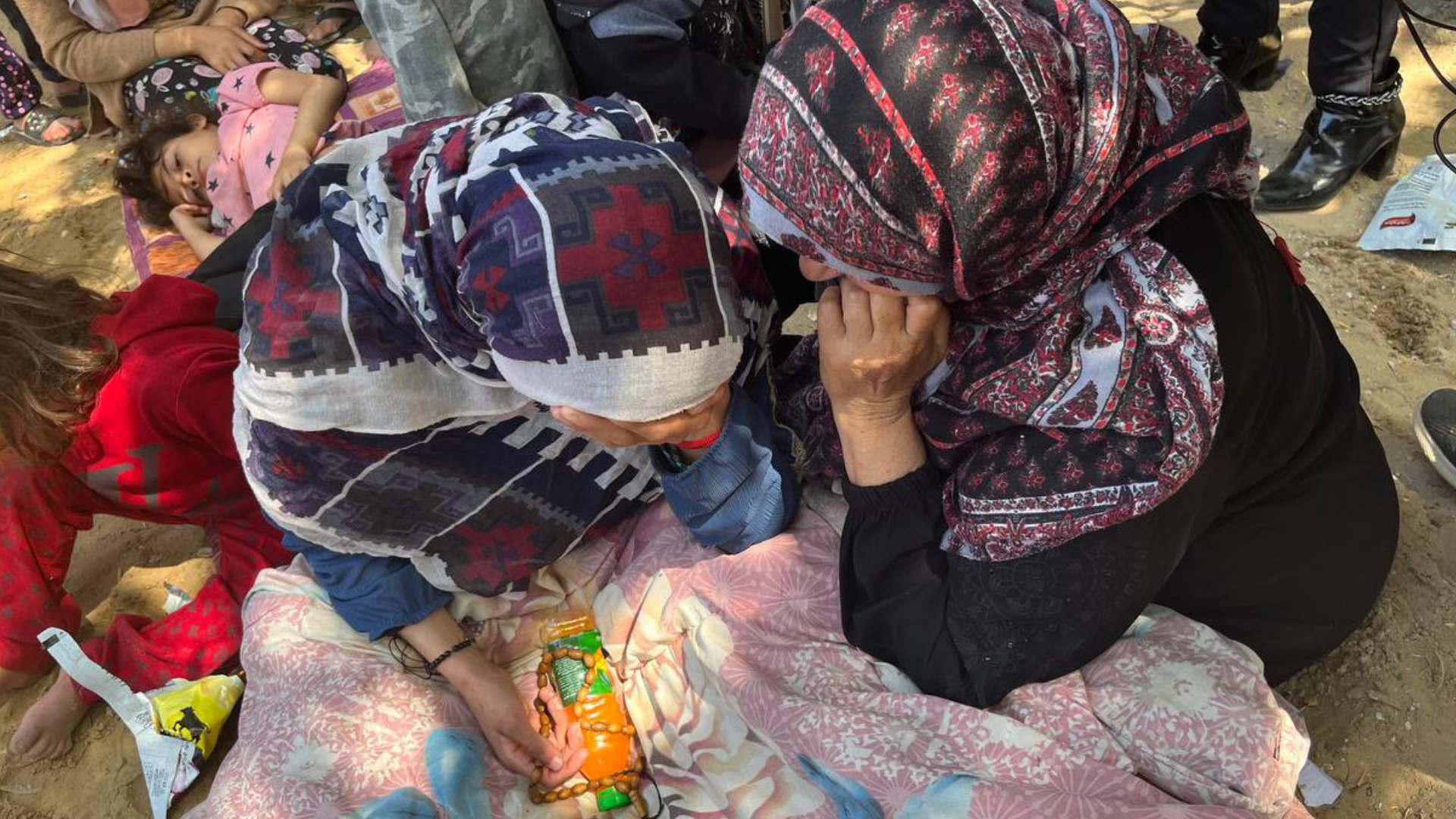Disabled, Homeless, Traumatised: Gaza’s Nabhan Family Speak Out among the Wreckage

Under the huge walnut tree in front of the residence of the Nabhan family in Beit Lahia in the northern Gaza Strip, its members meet to perform their new morning ritual; displaying their children with disabilities to the sun while sipping tea and communicating their dire economic reality.
As darkness fell in May 2023, occupation planes were active in terrorising the residents of the Gaza Strip as they had done on so many occasions over the last fifteen years and more. While the Nabhan children had been sleeping inside their home, they were jolted awake by their uncle, Kamal. He had just received a telephone call from the Israeli occupation intelligence services with a charitable offer to survive death providing he evacuated everyone in the house in just five minutes. Crying children were carried from the about-to-be-obliterated building. Women ran into the street without their head coverings.
The family, still subdued from the trauma and forced homelessness, shelter with dazed faces under the tree that had once complimented their home with nourishment and shade. The building, now nothing more than a heap of debris as a result of the bombing by an Israeli fighter plane. This four-storey house buried the memories of fifty people. Four of them with disabilities. As well as their vital medication and medical equipment.

The house of the Nabhan family is one of 51 housing units completely destroyed during the latest aggression against the Gaza Strip, which proceeded from 9-13 May 2023. In addition, 940 housing units were also damaged, of which 49 were rendered uninhabitable, according to to preliminary statistics.
One woman from the family says: "Israel didn't allow us to take away any of the belongings of this house, we barely survived ourselves with our disabled children."
Najah Nabhan, 57-years-old, embraces her 20-year-old daughter Areej, who has suffered from epileptic seizures since birth and relies on special drugs to relieve her regular convulsions.
Areej was covering her face with a black shawl, from which only her green eyes stood out, “We are unarmed civilians doing nothing to challenge the Israeli occupation until our house was destroyed like this,” she said.
“I was asleep and when my brother came and yelled to me, 'Come on, my people, they're going to bomb the house over our heads.' Then we came out running down the street among our cousins without our head coverings.”
The neighbours wash Areej's face occasionally in an effort to keep her alert. This neighbourhood is home to a strong community who collectively support each other, opening their homes to help care for the children of the Nabhan family.
Ms Najah says: "I don't know how to describe our fear of bombing or describe the pain of losing our family's only home. Nor describe the feelings of seeing my four children with disabilities in states of fear, losing medication, equipment and wheelchairs!"
Needless to say, individuals with motor disabilities are unable to run or escape imminent bombardment. And the risk of prolonged homelessness is equally potentially lethal, leaving the parents in a state of panic but attempting their best to support their children and other family members.

There are 15 members of the Nabhan family who were living in the basement of the house that was bombed, four of whom had physical disabilities and had difficulty moving, some also deal with mental disabilities.
Ayat, 29-years-old, and Hanin, 16-years-old, both suffer with problems with their legs and cannot walk. Areej, 20-years-old, suffers from epilepsy. Jalal, 38-years-old, has a motor disability and a psychiatric condition, which they say is inherited and difficult to treat with medication hard to source in Gaza due to the economic turmoil and restrictions caused by the Israeli blockade.
One doesn’t require a vivid imagination to picture the extent of this family’s suffering with the violent destruction of their home compounded by added complications of disabilities and poverty.
The Nabhan family already survives on humanitarian organisations for medicine and charities for food. The injustice inflicted on the Nabhan family reflects the wider-multifaceted injustice Israel wields on 2.2 million Palestinians imprisoned in Gaza as a whole. No wonder the place is now officially “unliveable” according to the United Nations.
Each round of Israeli bombardment, with world-leading military might on a captive population, ensure an ongoing steady increase in poverty in Gaza, currently up to at least 50% - meaning half of the population is living in dire conditions, with more than 80% of the population depending on humanitarian assistance.
The family are still frozen in trauma, wondering why such a brutal assault would be wielded against them.

Still sat under the tree, Ms Manal Nabhan, who handles some decaying cooking ware, says: "This is what we were able to get out before our home was bombed. Everything is over, my only daughter I gave birth to after years of infertility was badly injured [during the bombing]." She also mentions that her family essentially relies on breadcrumbs to satisfy their hunger in the absence of income due to the extensive unemployment.
The proportion of persons with disabilities in the occupied Palestinian territory is among the highest in the world, with 3.5% of the total population being affected - a statistic still rising, especially in Gaza to around 4% due to wounds inflicted from repeated Israeli aggressions.
This community urgently needs many services, especially psychological support. Those with disabilities in Gaza suffer because of their inability to cope in emergency situations, especially for those with motor, visual and psychological impairments.
Now at least, 45 members of the Nabhan family who survived death have made their dreams known to the world at the site of the ruins of their destroyed home.


